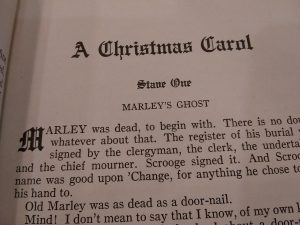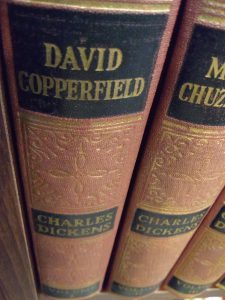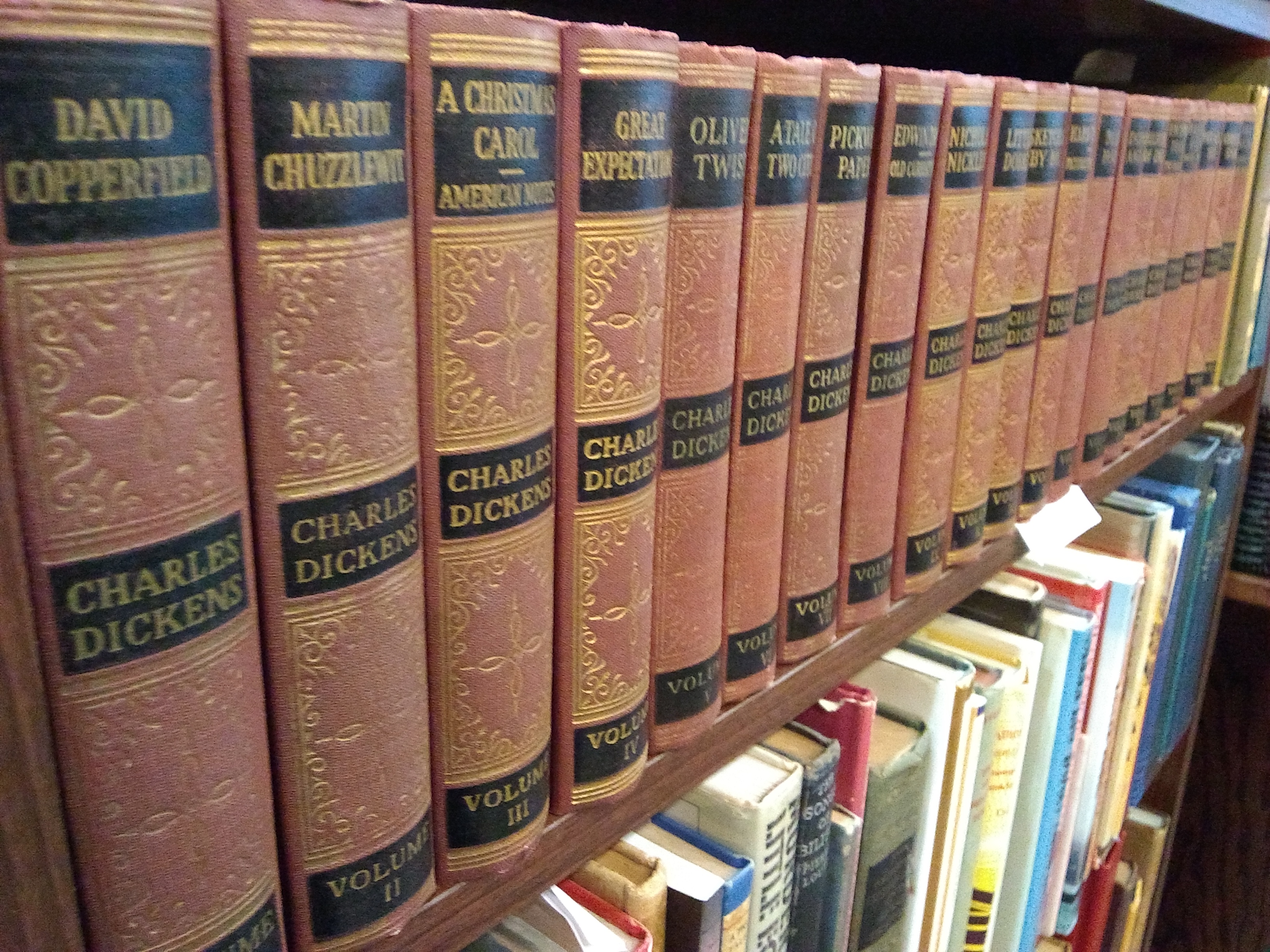It is pretty rare when a set of books comes in – with all the volumes present… but it happened today. And it’s always a happy day for me when Charles Dickens makes an appearance in the book shop.
Much to his dismay, the works of Charles Dickens were widely pirated, and he sold thousands of books – receiving nothing. His solicitors would send ‘Cease and Desist’ orders to U.S. publishers, who generally had ordered a copy of the latest Dickens novel and then set the type, reprinted the story, and took the profits. Copyrights were difficult to enforce in Dickens’s time, even though he made arrangements with publishers to print his ‘authorized’ version.

After his death, his works were widely reprinted in the U.S. by publishers who knew that Mr Dickens would no longer be sending legal representatives to protect his stories. The books that arrived today might be of that sort. Typically, early unauthorized editions contained no copyright information and – usually – no actual printing date. I was trying to pin down the date on this set when I ran across an ad in an Oakland Tribune issue from 1937.
The idea was to collect the twenty volume set by purchasing a couple of books at a time. (I remember doing that at the grocery store to acquire a set of Funk & Wagnall encyclopedias.) But – what a set of hoops the buyers were required to jump through!

According to the article from 1937, to obtain a set required a registration form, a printed mailing label, and a dozen ‘Dickens Certificates’ (obtained from the pages of the newspaper). Of course, the thirty-four-cent per volume price tag sounds pretty nice these days. Even the adjusted-for-inflation amount of $6.45 seems a bargain for a nicely printed hardback!
Such bargains could be offered when publishers were not required to pay royalty figures to authors or copyright holders. In the case of the Cleartype Edition library, the marketing expense was covered by the participating newspapers across the country – which also served as a distribution point for copies that were to be picked up in person rather than by mail.
Dickens wasn’t the only one ever to be defensive of his copyrighted works, and although he was vocal in his opposition to pirated copies, at least no lives were lost: the Irish in the mid-6th Century were a wee bit more emotional about their printed works. According to Wikipedia, the Battle of Cúl Dreimhne (Gaelic for the Battle of the Book) caused the deaths of some three-thousand Irish in a dispute over a copied religious book.

In the year 560 (or thereabouts), Irish abbot and missionary Saint Columba and Saint Finnian of Movilla Abbey disagreed over a religious book. Columba copied a volume owned by Saint Finnian, intending to keep the copy, but they disagreed as to whether it belonged to Saint Columba because he copied it or whether it belonged to Saint Finnian because he owned the original.
King Diarmait mac Cerbaill ruled on the disagreement, concluding that: “To every cow belongs her calf, therefore to every book belongs its copy.”
The judgment didn’t please Columba one bit. As a result, he staged a rebellion of the O’Néill clan against the King, which succeeded, but was said to have resulted in some 3,000 casualties.
Perhaps rightly shamed over the fuss, Columba took his copied book and left for Scotland, where he founded the Iona Abbey and devoted the rest of his life spreading the Christian gospel.
No lives need be lost in acquiring copies of books in our shop. And, although Charles Dickens might not have been happy about it, we are happy to offer the full set of the Cleartype Edition of his works, circa 1937, so patiently acquired by a newspaper reader and Dickens fan, in the time between the World Wars.
